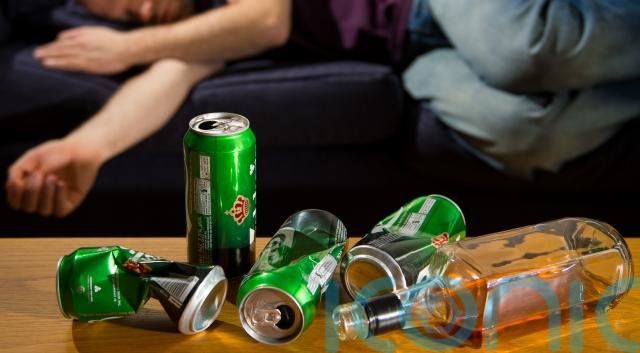
Ambulance staff often experience aggression, violence, and sexual harassment when responding to alcohol-related callouts, research has found.
The University of Stirling found frontline ambulance clinicians reported “general feelings of anxiety and frustration” relating to such incidents.
In a study said to be the first of its kind, the researchers interviewed 27 frontline staff, including paramedics and paramedic technicians, as well as four senior Scottish Ambulance Service workers.
Some reported anxiety linked to the unpredictable behaviour of intoxicated patients as they responded to call-outs in places including clubs, bars and on streets.
The study authors suggest addressing the issues by providing better support for patients with chronic alcohol problems, and more regulation from authorities such as limiting the sale of alcohol after midnight to fewer premises.
Dr Isabelle Uny, research fellow at the university’s Institute for Social Marketing and Health and lead author of the paper, said: “Our findings show the extent to which alcohol consumption, both on social occasions and by people with alcohol dependence, adds to the pressure on ambulance services and staff.
“We found that ambulance staff displayed a deep duty of care to these patients, despite the frustrations, challenges and aggression, and often treated experience of violence or harassment as routine.”
The researchers found sexual harassment was more commonly reported by female staff.
Others reported experiences of violence, with one technician saying: “I will say the only times I’ve been physically threatened if not assaulted have always been drunk patients.”
A female technician said: “The thing is that you don’t know how they are going to turn, because one minute they can be nice and the next minute they can be… It’s almost like the flick of a switch and they can just turn so nasty.”
Previous research by the university found one in six ambulance call-outs in Scotland are alcohol-related.
A Scottish Ambulance Service spokesperson said: “We recognise the impact of alcohol-related harm and addiction in Scotland, and we strongly condemn violence and aggression against our staff.
“It is not acceptable. These incidents can have a significant and lasting impact on our people, sometimes even leading them to leave the ambulance service.
“They have the right to carry out their work helping patients and saving lives without fear of assault or abuse, and we will work with Police Scotland to take action against perpetrators.”
Interviews for the study were carried out between May 2019 and June 2022.
A Scottish Government spokesperson said: “We are making progress in tackling alcohol harms, with recent statistics showing the number of alcohol-specific deaths dropping by 7%.

“We are determined to build on this progress, providing record levels of funding for alcohol programmes and widening access to treatment, including residential rehabilitation.
“Research commended by experts has estimated that our minimum unit pricing policy has saved hundreds of lives and is likely to have averted hundreds of alcohol-attributable hospital admissions.
“Alcohol licensing decisions, including setting appropriate hours for selling alcohol in places like pubs and nightclubs, are the responsibility of independent local licensing boards in Scotland’s 32 local authorities. Board licensing objectives include protecting and improving public health and prevention of crime and disorder.
“Any kind of threat or assault on our ambulance staff is completely unacceptable. No-one should be the victim of abuse or violence while at work.
“The independent courts have a range of powers to deal with perpetrators, including the Emergency Workers Act with penalties of up to 12 months imprisonment, a £10,000 fine, or both, available.
“This is in addition to general offences that can be used for more serious attacks on ambulance staff, with higher penalties available for use by the court.”
Subscribe or register today to discover more from DonegalLive.ie
Buy the e-paper of the Donegal Democrat, Donegal People's Press, Donegal Post and Inish Times here for instant access to Donegal's premier news titles.
Keep up with the latest news from Donegal with our daily newsletter featuring the most important stories of the day delivered to your inbox every evening at 5pm.